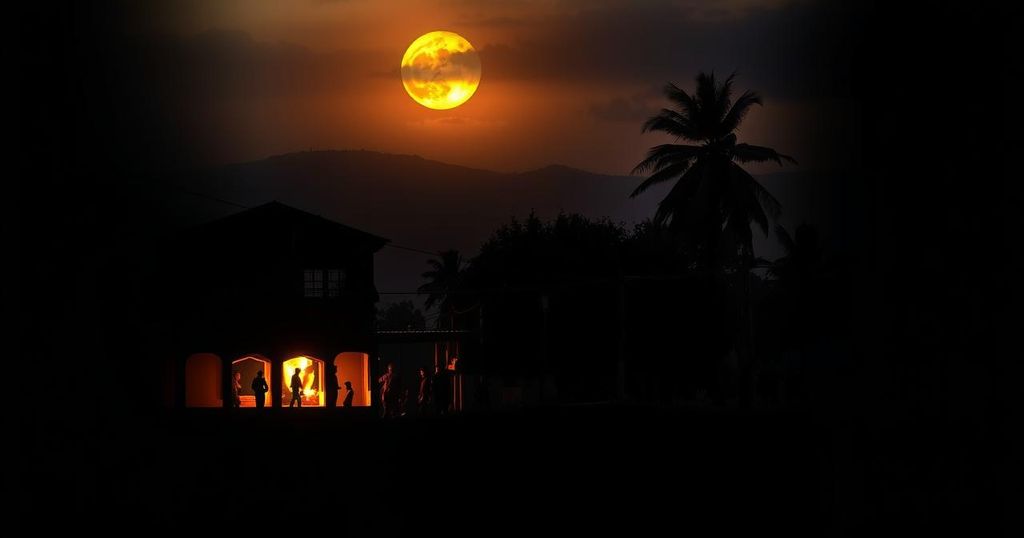Cardinal Stephen Ameyu Martin Mulla has stated that since achieving independence from Sudan fourteen years ago, South Sudan has seen a significant increase in issues such as political instability, mismanagement of resources, and economic decline. Despite attempts at peace agreements, these challenges persist, exacerbated by natural disasters and the effects of the ongoing conflict in Sudan. He advocates for dialogue and the principles of the Synod on Synodality as potential pathways to reconciliation and peace.
In a recent statement, Cardinal Stephen Ameyu Martin Mulla, the leading Catholic figure in South Sudan, revealed that the nation continues to grapple with escalating challenges fourteen years post-independence. He articulated that the original expectations for freedom and peace have not materialized, instead leading to exacerbated difficulties due to mismanagement of resources by the authorities. “We got this independence from Sudan. We thought that we were going to solve our problems. But it seems that problems have increased,” Cardinal Ameyu said during the Synod on Synodality held in Rome. As the Archbishop of Juba, Cardinal Ameyu emphasized that South Sudan, which is rich in its ethnic diversity with over 60 groups, remains plagued by unresolved issues, partly stemming from a civil war that erupted in 2013 shortly after independence when President Salva Kiir accused former Vice-President Dr. Riek Machar of insurrection. This turmoil has generated ongoing political violence and instability, with numerous failed attempts at peace agreements failing to bring lasting resolution. Father John Gbemboyo, the Pastoral and Social Communication Coordinator for the Sudan Catholic Bishops’ Conference, highlighted that the effects of this conflict have led to severe human rights violations and a humanitarian crisis that continues to deteriorate. Although a peace agreement was signed in 2018 to address the conflicts, many provisions remain unrealized due to political inertia and self-serving tactics from leaders, resulting in the postponement of elections originally slated for December 2024 to now December 2026. Cardinal Ameyu lamented the repercussions of these failures, noting that they contribute to ongoing corruption and resource mismanagement. Economic conditions have further worsened, exemplified by high inflation rates and unpaid civil servant salaries. Additionally, natural disasters such as heavy rains and floods have compounded the hardships faced by many South Sudanese. Ameyu also commented on the dire situation in neighboring Sudan, which is embroiled in conflict between military factions. The ongoing war has resulted in significant loss of life and massive displacements, further straining South Sudan as many refugees flood into the country seeking safety and basic needs. Despite these challenges, Cardinal Ameyu expressed hope in the Synod on Synodality as a potential avenue for reconciliation and healing. He proposed that through collective dialogue and service-oriented leadership, both church and political leaders can work towards resolving the entrenched issues afflicting their nations, facilitating a path towards peace and restored stability.
The conflict in South Sudan originates from a civil war that began shortly after the country gained independence from Sudan in 2011, following decades of warfare. The struggle for freedom ignited expectations for stability and resource management, yet the ongoing violence and political instability have complicated these aspirations. Key agreements intended to foster peace, such as those signed in 2015, 2017, and 2018, have largely gone unfulfilled, leading to worsening socio-economic conditions. The humanitarian situation is dire, exacerbated by economic mismanagement and the impact of environmental catastrophes. Cardinal Ameyu’s reflections on both South Sudan and Sudan illuminate the broader regional challenges faced by both nations as they navigate their tumultuous political landscapes while seeking a path toward lasting peace.
In conclusion, the statements from Cardinal Stephen Ameyu Martin Mulla reflect a profound concern for the troubling state of South Sudan, characterized by unmet hopes for peace and ongoing strife rooted in political power struggles. The Cardinal’s call for dialogue and collaboration through the Synod on Synodality suggests that meaningful progress toward stability may still be possible, provided leaders and communities engage earnestly in the pursuit of service, empathy, and mutual understanding. With the deteriorating conditions in both South Sudan and Sudan, the urgency for effective change and humanitarian support is critical.
Original Source: cruxnow.com






